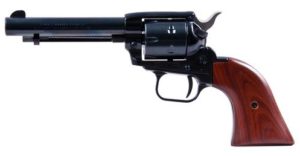Father Morales was a rural Catholic priest in Argentina, circa 1920. His ministry covered an area of dairy farms, small towns, and isolated landless peasant houses. It was considered a rough territory, as there were some small-time thieves, some unemployed cowboys, and maybe some Indians. The latter were not a problem anymore to the European settlers, but memories of “malones” still lingered: hundreds or thousands of Indians on horseback raiding ranches and even small towns, killing the men, capturing the women, and making off with the cattle. The area was in the shade of a big city, Buenos Aires, with its European parks and boulevards and its European aspirations. Not urban yet, not wild anymore, not fully rural, Father Morales’ territory was like a deflated balloon whose soul was being sucked out by the nearby metropolis.
A rough neighborhood meant that a horse could not be left tied up on the street without a couple of dogs to protect it, or that an unexpected encounter with a drunken cowboy might degenerate in a knife duel. Whether such risk was likely Father Morales could not tell; but such duels were an essential part of the local mythology. Even places had been named after real or imaginary acts of heroism and tragedy, such as a tavern in what was then the outskirts of Buenos Aires. A cowboy was riding towards the city and, in his desire to arrive early, had decided not to stop anywhere. However, he chanced upon the tavern and thought that a quick drink would not delay him too much. Inadvertently, perhaps because he was in a hurry, he offended another patron and was challenged to a knife duel, which as a matter of honor was very hard to refuse. He was killed, and because of this incident the tavern was renamed “El Destino” (Fate).
Certainly the presence of marginal characters was one of Father Morales’ concerns. So, he decided that packing a gun was probably a good idea. Not a knife, because nobody in his right mind would think of provoking a priest to a knife duel. However, a revolver could come in handy as a deterrent.
On one occasion Father Morales was coming back from his house calls and passed near a group of men gathered outside a tavern. Although everybody was nominally a Catholic, and certainly the Church was always present in life passages such as marriage and death, certain anti-religious ferment was in the air. Unions were populated by Anarchists, Socialists, and some early Communists, all of whom identified the Church with the conservative forces in society. And the liberal politicians were distinctly secular in their views. As Father Morales was trotting in front of the group one of the men yelled at him: “Toca fierro, cuervo!” A whole symbolic representation of class relations at that time and place was conveyed by those few words. “Cuervo” meant “crow,” a derogatory word for black-clad priests and lawyers. “Toca fierro,” literally “touch iron,” meant that priests brought bad luck, which should be arrested by touching an object made of iron. Insulting a Catholic priest was also a symbolic act of rebellion against the powerful, aristocratic landlords who kept the peasants landless and poor.
Father Morales thought of his revolver, which he had carried around for many months without any demonstrable need for it, and decided that the time had come to put it to good use. He dismounted, slowly walked over to where the men were gathered, opened his habit and made his revolver visible. It was shinny, powerful, and a totally unexpected sight on a priest’s waist. It was certainly made of iron. He addressed the man who had yelled at him and said, pointing to the gun:
“Please, my son, toca fierro.”

